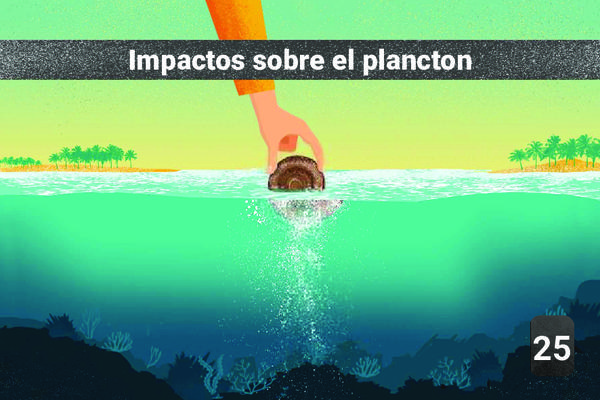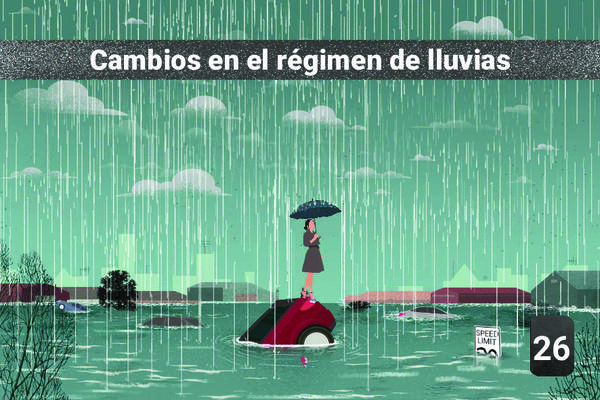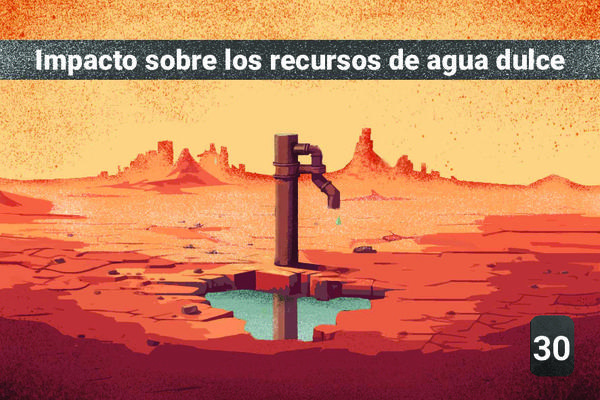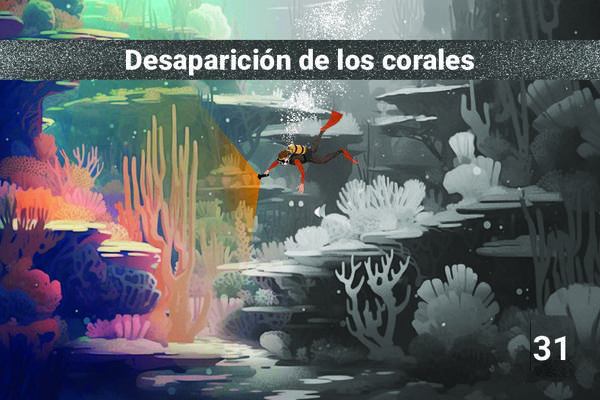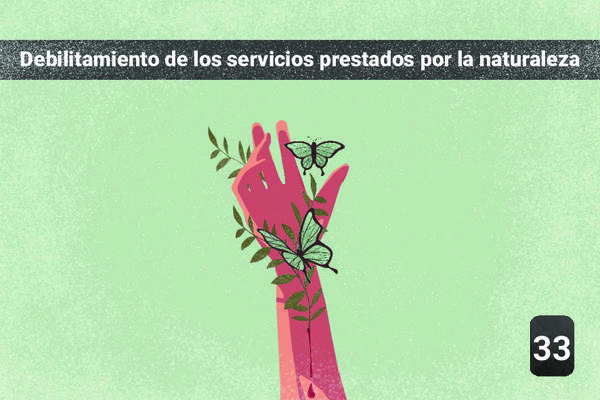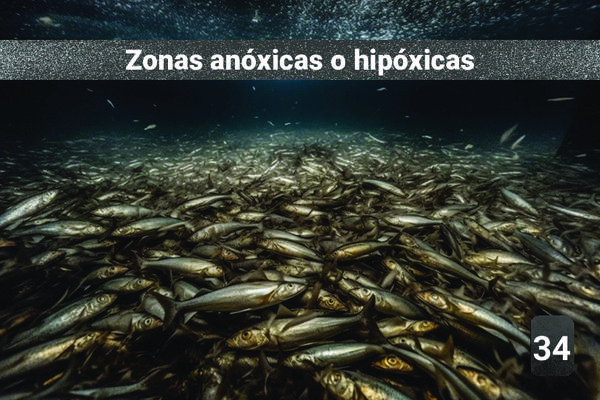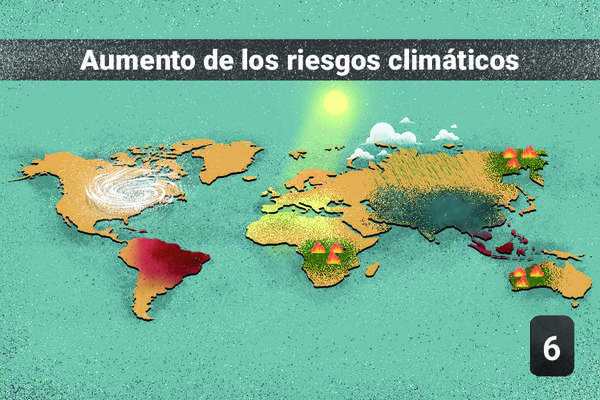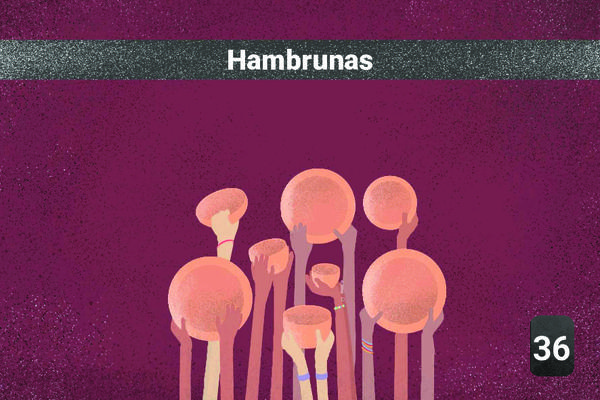39 - Decline in yields
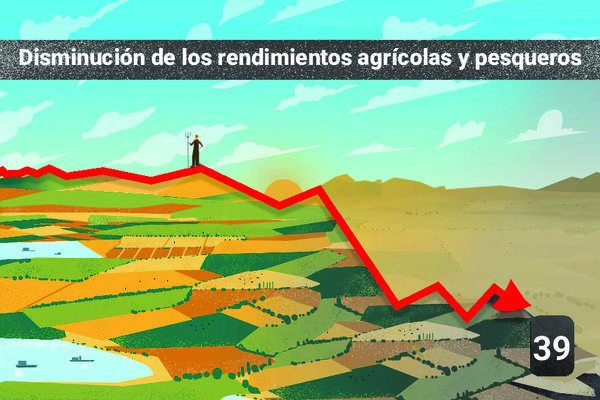
✏️ Esta explicación aún no está disponible en tu idioma, haz clic aquí para sugerir tu traducción o escribe un correo electrónico a fdn.memo@marc-antoinea.fr.
7Causas
The decline of plankton impacts the entire marine food chain and therefore fish resources.
Disruption of the rain pattern (less rain or more intense rain) can have an impact on agricultural yields.
Fresh water is essential for agriculture, which uses it in large quantities (70% of global consumption of blue water), whether it is blue water or green water.
“We must consider here the yields of fishing. 25% of marine biodiversity depends on coral reefs. Fewer corals means fewer fisheries resources.”
“A decline in pollinating insects can impact agricultural yields (75% of global food production depends on pollinating insects). A decline in corals and plankton can impact fishery resources (fish, crustaceans, molluscs). In Asia, more than a billion people depend on fishing as their primary food resource (animal protein), particularly in low-income countries.
Anoxic/hypoxic zones have a direct impact on fish populations, and can locally reduce fishery yields.
Climatic hazards can degrade agricultural yields: destruction of crops by storms, cyclones, hail, floods, heatwaves, droughts, etc.

